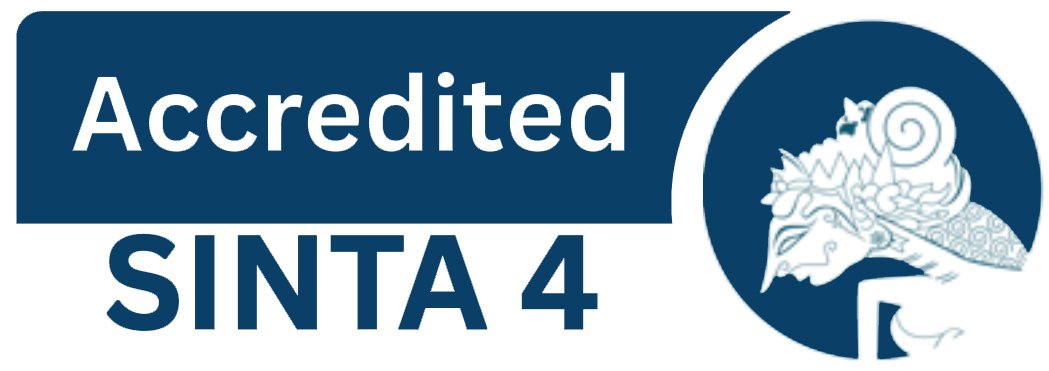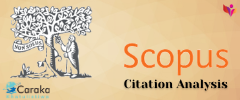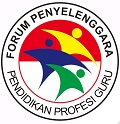The Use of STEM (Science, Technology, Engineering, and Mathematics) Models to Improve Elementary School Science Concept Understanding
DOI:
https://doi.org/10.22460/jpp.v4i1.23530Keywords:
Understanding Of Concept, Natural Science Learning, STEMAbstract
Science learning in elementary schools aims to help students understand scientific concepts through observation and real experiences. This study aims to describe the improvement of fifth-grade elementary school students' conceptual understanding related to the properties of light through the application of the STEM (Science, Technology, Engineering, and Mathematics) learning model. SDN 2 Cilumba conducted the study, employing the pre-experimental method of a one-group pretest-posttest design. The instruments used included a concept understanding test and interviews. The results of data analysis showed a significant increase in students' average scores, from 58.81 (pretest) to 78.53 (posttest). The paired t-test produced a significance value of 0.000 < 0.05, indicating that the STEM model was effective in improving students' conceptual understanding. The results of the interviews revealed that students were enthusiastic about participating in STEM-based learning, even though teachers faced time constraints and students had difficulty restating concepts. Overall, the majority of students were in the good understanding category (60.01%), excellent (26.66%), and sufficient (13.33%). These findings reinforce that the STEM approach can be an alternative to meaningful and intriguing science learning at the elementary school level.
References
Afifah, A. (2021). Peningkatan keterampilan proses sains siswa pada mata pelajaran IPA konsep tekanan zat cair melalui pendekatan stem (science technology engineering mathematic). Jurnal Pendidikan dan Pengajaran Guru Sekolah Dasar (JPPGuseda), 04, 75-79
Beers, S. Z. (2011). 21st Century Skills: preparing students for their future. Kappa Delta Pi.
Bruner, J. S. (1961). The act of discovery. Harvard Educational Review, 31(1), 21–32.
Bybee, R. W. (2013). The case for stem education: challenges and opportunities. National Science Teachers Association (NSTA) Press.
Dewi, S. Z., & Ibrahim, T. (2019). Pentingnya pemahaman konsep untuk mengatasi miskonsepsi dalam materi belajar ipa di sekolah dasar. Jurnal Pendidikan Universitas Garut, 13.
Fitriansyah, Werdhiana, I. K., & Saehana, S. (2021). Pengaruh pendekatan stem dalam model inkuiri terbimbing terhadap sikap ilmiah dan kerja ilmiah materi ipa. Jurnal Ilmiah Pendidikan Fisika, 5.
Ghozali, I. (2016). Aplikasi analisis multivariate dengan program ibm spss 23 (8th ed.). Semarang: Badan Penerbit Universitas Diponegoro.
Ishak, A. M., Israwaty, I., & Halik, A. (2021). Penerapan pendekatan stem untuk meningkatkan hasil belajar siswa sekolah dasar kelas lima di kabupaten barru. Pinisi Jurnal of education, 1.
Mohyeden, J. (2021). Meningkatkan pemahaman konsep cahaya melalui penerapan metode praktikum pada siswa kelas v SDI Paupanda 3. Jurnal Pendidikan Ekonomi, 6.
Ningsih, D. S. (2019). Meningkatkan pemahaman konsep IPA melalui metode demonstrasi di kelas Vb SDN 61/X Talang Babat. Jurnal Gentala Pendidikan Dasar, 4, 22-40.
Oktapiani, N., & Hamdu, G. (2020). Desain pembelajaran stem berdasarkan kemampuan 4C di sekolah dasar. Jurnal Ilmiah Pendidikan Dasar, VII.
Perdiansyah, F., & Prilia, A. D. (2021). Upaya meningkatkan pemahaman konsep ipa melalui model pembelajaran probing prompting kelas III SDN Batujaya kota Tangerang. Jurnal pendidikan dasar.
Radiusman. (2020). STUDI LITERASI: Pemahaman konsep siswa pada pembelajaran matematika. FIBONACCI : Jurnal Pendidikan Matematika dan Matematika, 6.
Raharjo, W. T., & Kristin, F. (2019). Peningkatan hasil belajar ipa peeserta didik menggunakan model pembelajaran make a match pada kelas 4 SD. XXXV.
Rahayu, J., Salam, R., & Hamkah, M. (2021). Peningkatan hasil belajar ipa melalui model problem based learning pada siswa SD. Jurnal PGSD, 1.
Roehrig, G. H., Moore, T. J., Wang, H.-H., & Park, M. S. (2012). Is adding the e enough? Investigating the impact of k-12 engineering standards on the implementation of stem integration. School science and mathematics, 112(1), 31–44. https://doi.org/10.1111/j.1949-8594.2011.00112.x
Sanders, M. (2009). STEM, stem education, stemmania. The Technology Teacher, 68(4), 20–26
Setiawan, N. C., Sutrisno, Munzil, & Danar. (2020). Pengenalan stem (sains, technology, engineering and mathematic) dan pengembangan rancangan pembelajarannya untuk merintis pembelajaran kimia dengan sistem SKS di kota Madiun. Jurnal Pengabdian kepada Masyarakat, 5.
Soleman, N., & Umanahu, M. (2023). Meningkatkan hasil belajar ipa materi kerusakan lingkungan melalui strategi modeling the way. Jurnal PENDAS, 5.
Suroto. (2021). Penerapan metode stem berbasis proyek untuk meningkatkan hasil dan keaktifan belajar mata pelajaran sistem kontrol terprogram. Jurnal edukasi elektro, 05.
Susanti, N. K., Asrin, & Khair, B. N. (2021). Analisis tingkat pemahaman konsep ipa siswa kelas v sdn gugus v kecamatan cakranegara. Jurnal Ilmiah Profesi Pendidikan, 6.
Suwardi. (2021). STEM (sains, technology, engineering and mathematic) inovasi dalam pembelajaran vokasi era merdeka belajar abad 21. Jurnal Ilmu Pendidikan dan Psikologi, 1.
Trianingsih, R. (2023). Peningkatan hasil belajar ipa tentang sistem tata surya melalui media audio visual di sekolah dasar. Jurnal Ilmiah Kependidikan, 6.
Wahyuni, N. P. (2021). Penerapan pembelajaran berbasis stem untuk meningkatkan hasil belajar ipa. Journal of Education Action Research, 5.
Wandini, R. R., Sari, P. Z., Rini, N. I., Aprianni, S., & Rahmadani, A. (2022). Menerapkan proses keterampilan dalam pembelajaran ipa di MI/SD. 4.
Wati, U. B., Hakim, L., & Treny, H. (2022). Analisis pemahaman konsep ipa materi sifat-sifat cahaya siswa kelas v. Jurnal Pendidikan dan Konseling, 4.
Zulkarnain , I., & Budiman, H. (2019). Pengaruh pemahaman konsep terhadap kemampuan pemecahan masalah matematika. Journal Of Education, 6.
Downloads
Published
How to Cite
Issue
Section
License
Copyright (c) 2025 Ade Nira Susilawati, Jajang Bayu Kelana, Muhammad Ghiyats Ristiana

This work is licensed under a Creative Commons Attribution-ShareAlike 4.0 International License.
Authors who publish with the Journal Pendidikan Profesi (JPP) agree to the following terms:
- Authors retain copyright and grant the journal the right of first publication with the work simultaneously licensed under a Creative Commons Attribution License (CC BY-SA 4.0) that allows others to share the work with an acknowledgment of the work's authorship and initial publication in this journal.
- Authors are able to enter into separate, additional contractual arrangements for the non-exclusive distribution of the journal's published version of the work (e.g., post it to an institutional repository or publish it in a book), with an acknowledgment of its initial publication in this journal.
- Authors are permitted and encouraged to post their work online (e.g., in institutional repositories or on their website) prior to and during the submission process, as it can lead to productive exchanges, as well as earlier and greater citation of published work. (See The Effect of Open Access)
Similar Articles
- Ayu Erika Puspasari, Penerapan Model Problem Based Learning Berbantuan Geogebra Classroom Untuk Meningkatkan Motivasi Belajar Peserta Didik , Jurnal Profesi Pendidikan: Vol. 1 No. 2 (2022): December
- Husni Qodariah, Sylvia Rabbani, Pengembangan Media Pembelajaran Ayam MSP Materi Satuan Panjang Berbantuan Aplikasi Scratch Dengan Menggunakan Model Discovery Learning Untuk Meningkatkan Pemahaman Konsep Matematika Pada Siswa SD Kelas III , Jurnal Profesi Pendidikan: Vol. 1 No. 2 (2022): December
- Ahadiyatul Kamilah, Siti Ruqoyyah, Keterampilan Membaca Permulaan Siswa Kelas 1 SD Menggunakan Contextual Teaching And Learning Berbantuan Kartu Kata , Jurnal Profesi Pendidikan: Vol. 1 No. 1 (2022): June
- Hanifah Hanifah, I Nengah Suastika, Dewa Bagus Sanjaya, A Systematic Review of Gamification-Based Learning Resources in Civic Education: Enhancing Student Engagement and Civic Competence , Jurnal Profesi Pendidikan: Vol. 4 No. 1 (2025): June
- Siti Patimah, Jajang Bayu Kelana, Pengembangan Bahan Ajar Menggunakan Model Problem Based Learning Berbantuan Aplikasi Powerpoint untuk Meningkatkan Kemampuan Pemahaman Konsep Matematika Pada Siswa Kelas IV , Jurnal Profesi Pendidikan: Vol. 2 No. 1 (2023): June
- Nina Vania, Wahyu Hidayat, Trisna Nugraha, Penggunaan Model Problem Based Learning Berbantuan Video Powtoon Untuk Meningkatkan Kemampuan Berpikir Kritis Siswa Kelas III Sekolah Dasar , Jurnal Profesi Pendidikan: Vol. 3 No. 1 (2024): June
- Teti Suharyati, Hana Sakura Putu Arga, Penerapan Model Project Based Learning Untuk Meningkatkan Kemampuan Berpikir Kritis Siswa Pada Pembelajaran PPKn di Kelas IV Sekolah Dasar , Jurnal Profesi Pendidikan: Vol. 2 No. 1 (2023): June
- Rai Restu Gustina, Asep Kurnia Jayadinata, Pengaruh Bahan Ajar Power Point Interaktif Dengan Model Contextual Teaching And Learning (CTL) Untuk Meningkatan Pemahaman Konsep Pelajaran Pkn Kelas V SD , Jurnal Profesi Pendidikan: Vol. 2 No. 1 (2023): June
- Isyfa Robi’ah Al-Adawiyah, Neneng Kurnia Sandi, Rima Rahmawati Permana, Sulastri Nurmaya, Ryan Dwi Puspita, Analisis Model Pembelajaran Projek Based Learning (Pjbl) Terhadap Konsentrasi Belajar Peserta Didik di Sekolah Dasar , Jurnal Profesi Pendidikan: Vol. 3 No. 1 (2024): June
- Hurul Ain, Ade Siti Haryanti, Ridhowati, The Influence of Audio-Visual Advertising Media on the Ability to Write Persuasive Texts of Class VIII Students of SMP Negeri 9 East Jakarta , Jurnal Profesi Pendidikan: Vol. 4 No. 1 (2025): June
You may also start an advanced similarity search for this article.
















